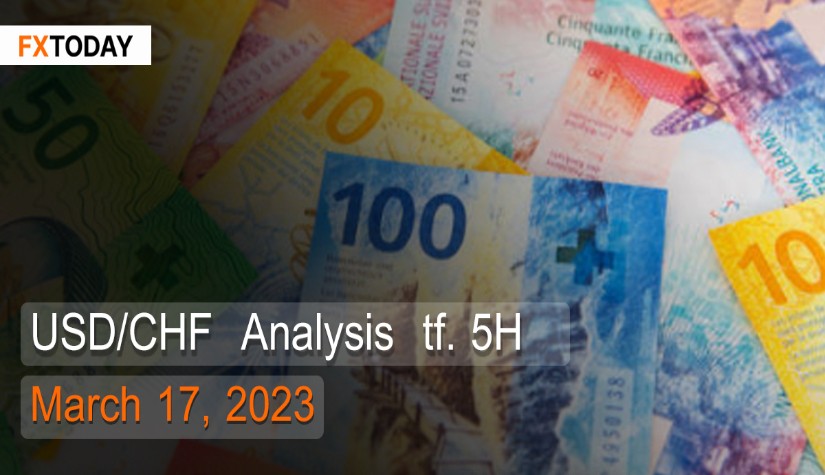The Swiss franc (CHF) is slightly weak due to central bank intervention.
Switzerland is also a country where the inflation rate is not very high. On March 6th, it was announced that the consumer price index (CPI) was at 3.4%. It is higher than expected and there is a trend that it will continue to rise. In addition, there is also the problem of Credit Suisse. Credit Suisse is an old bank that is 167 years old and is one of the largest financial institutions in the world, as well as being the second largest lender in Switzerland. However, it is currently facing a major problem due to higher interest rates and losses in the past year.
Credit Suisse was reviewed by the Financial Stability Board (FSB), an international organization that oversees the financial system in banks along with 30 other institutions including JPMorgan Chase, Bank of America and Bank of China. They found that Credit Suisse has been experiencing problems for several years. In 2022, the bank was impacted by predictions that it was going to collapse, resulting in customers withdrawing billions of dollars. This made it almost impossible to make a profit from loans or other transactions.
Credit Suisse, a Swiss multinational investment bank, has been facing financial difficulties in recent years. Last year, the bank's stock hit a record low after posting its largest annual loss since the financial crisis in 2008. The regulatory authorities are currently investigating the chairman's comments on the company's financial status.
In the past few days, the bank has borrowed up to CHF 50 billion ($53.7 billion dollar) from the Swiss National Bank, using the benefits of the 30% drop in its stock to buy back shares and repay some debt. The support of the central bank is expected to help restore confidence in Credit Suisse and push forward restructuring plans, as well as managing finances for its customers.
However, analysts from JPMorgan believe that the central bank's liquidity support may not be sufficient, due to the continuous decline in market confidence and concerns about counterparty risks. This may lead to potential spillover effects, as other major Swiss banks, such as UBS, may face similar issues. As a result, the Swiss franc has weakened slightly in the past few days.
Technical analysis data (5H)
| Name | S3 | S2 | S1 | Pivot Points | R1 | R2 | R3 |
| Classic | 0.9246 | 0.9265 | 0.9282 | 0.9301 | 0.9318 | 0.9337 | 0.9354 |
| Fibonacci | 0.9265 | 0.9279 | 0.9287 | 0.9301 | 0.9315 | 0.9323 | 0.9337 |
| Camarilla | 0.9289 | 0.9292 | 0.9296 | 0.9301 | 0.9302 | 0.9306 | 0.9309 |
| Woodie's | 0.9246 | 0.9265 | 0.9282 | 0.9301 | 0.9318 | 0.9337 | 0.9354 |
| DeMark's | - | - | 0.9292 | 0.9306 | 0.9328 | - | - |
| Name | Value | Action |
| RSI(14) | 53.191 | Neutral |
| STOCH(9,6) | 75.103 | Buy |
| STOCHRSI(14) | 72.110 | Buy |
| MACD(12,26) | 0.001 | Buy |
| ADX(14) | 31.603 | Sell |
| Williams %R | -29.495 | Buy |
| CCI(14) | 61.1003 | Buy |
| ATR(14) | 0.0053 | High Volatility |
| Highs/Lows(14) | 0.0020 | Buy |
| Ultimate Oscillator | 53.231 | Buy |
| ROC | 1.417 | Buy |
| Bull/Bear Power(13) | 0.0071 | Buy |
|
Buy:9 Sell:1 Neutral:1 Summary:Strong Buy |
||
















